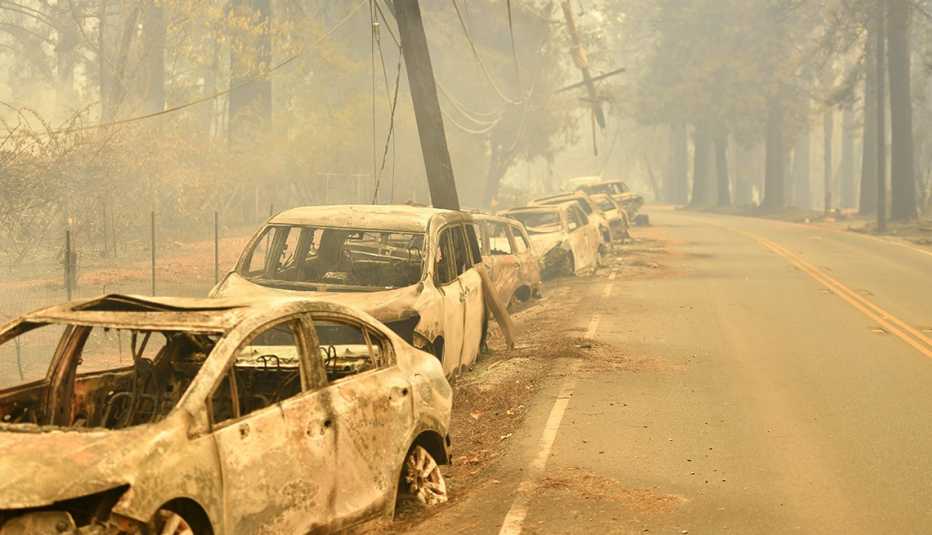Staying Fit


With California and 14 other states battling wildfires amid the pandemic, it’s vital for people who are in harm’s way to be prepared.
Since 2018, when the deadliest California wildfire ever decimated the town of Paradise, Butte County Sheriff Kory Honea says he's “preached the gospel of preparedness."


AARP Membership— $12 for your first year when you sign up for Automatic Renewal
Get instant access to members-only products and hundreds of discounts, a free second membership, and a subscription to AARP the Magazine.
Preparing starts with having a plan for yourself, family and pets. That includes figuring out ahead of time if there is a place nearby to shelter in place, mapping out potential evacuation routes and practicing the routes.
Honea, who also is county coroner in Butte County, and others who experienced the disastrous Camp Fire have hard-earned preparedness and survival tips. Among them:
- Sign up for emergency alerts where you live to receive communications about severe weather, wildfires or other dangers. Some places offer alerts via texts, push notifications, phone calls and emails.
- If first responders order you to evacuate because of a looming threat, Honea says, do so immediately.
"In the Camp Fire [in Paradise], I've heard some just gut-wrenching stories about people calling 911, begging us to send fire engines and cops to get them out,” Honea says. “But there were no fire engines to send. There's no way to get to them” when routes are blocked by fire or emergency resources are already tied up.
- Take digital photos and/or videos of your home and possessions, so you'll have documentation for a potential insurance claim. Put them on a flash drive for storage in a safe-deposit box or with a relative.
- Fully insure your home and belongings.
- Safeguard what's on your home computer by backing it up to the cloud. That way documents, photos, videos and other files will be preserved if the computer is destroyed. Firms offer this service for about $60 a year.
- Keep gas in your tank and your vehicle in good shape. Know how to open your garage door if power fails — or, if there's a looming threat, leave the vehicle outside the garage.
- Keep an evacuation checklist so you're not trying to remember to bring your medications, for example, during the stress of taking flight.
"Just simple things — don't get carried away,” says Scott McLean, a deputy chief with Cal Fire, the state Department of Forestry and Fire Protection. And include your entire family in preparedness and planning.
Editor's note: This story has been updated to reflect the outbreaks of wildfires in 2020.



































































More on Politics
School Teacher Who Lost His Family Returns to Paradise Alone
"There's a reason I'm here right now"
One Year Ago: California's Deadliest Wildfire Ravaged Town of Paradise
Most of the victims were older AmericansRestaurant Owner Rebuilds Paradise, One Meal at a Time
Serving food to residents and workers is a family affair